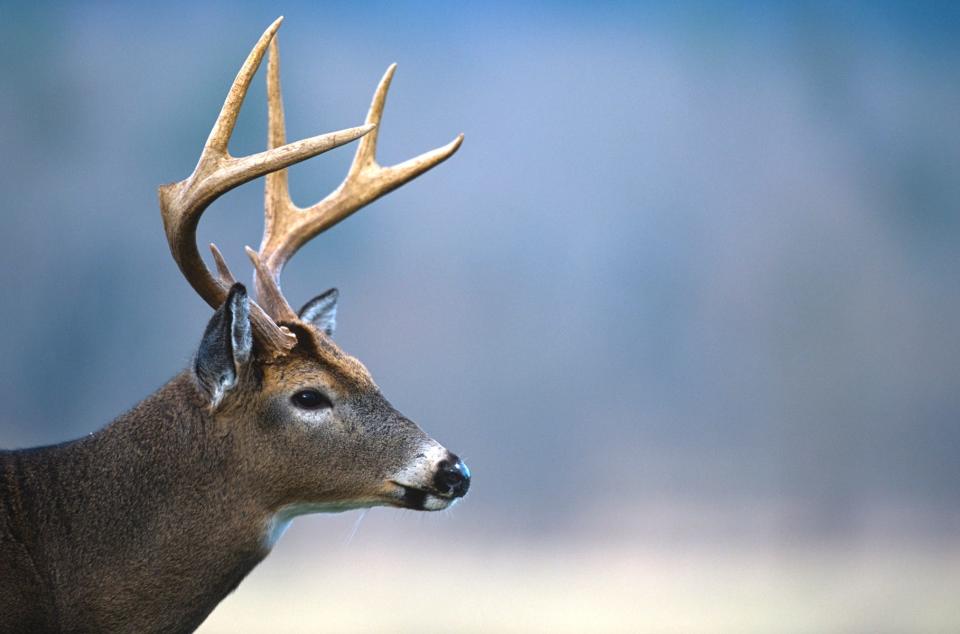New cases of chronic wasting disease found in deer in Cumberland County
More than a dozen new cases of neurological disease have been detected in deer in Cumberland County since July, according to the state Wildlife Resources Commission.
The commission reports that 13 new cases of chronic wasting disease have been detected in Cumberland, Surry, Stokes and Yadkin counties, bringing the total number of cases to 24 since the disease was first detected in Yadkin County in 2021.
On Wednesday, the Wildlife Resources Commission announced additional counties are being monitored. Those counties are Alexander, Alleghany, Ashe, Bladen, Davie, Forsyth, Guilford, Harnett, Hoke, Iredell, Robeson, Rockingham and Sampson counties.
The Wildlife Resources Commission said that last fall, 36,146 samples from wild deer were tested.
According to the release, the Wildlife Resources Commission is forced to test deer samples because the disease is impossible to detect through observation and signs of the illness may not be apparent for more than 16 months after the animal is infected. The release said that given enough time, the disease is always fatal to the animal.
Once the disease prions are present on surrounding soil and vegetation, they are practically impossible to remove or destroy, and can infect healthy deer for years, the Wildlife Commission said.

The disease is caused by abnormal proteins, called prions, that slowly spread through a deer’s nervous system, eventually causing spongy holes in the brain that lead to death, the Wildlife Resources Commission states. The disease is spread between deer through direct contact and environmental contamination from infected saliva, urine and feces, and can also be spread through the transportation of hunter-harvested deer carcasses or carcass parts.
According to the Centers for Disease Control and Prevention, the World Health Organization recommends that it is important to stop the agents of the disease from entering the human food chain, even though there have been no reported cases of the disease infecting people.
What does this mean for Cumberland County?
Anyone who harvests a deer from Nov. 16-23 in Bladen, Cumberland, Harnett, Hoke, Robeson, and Sampson counties is required submit a sample for testing within two weeks of the harvest, the Wildlife Resources Commission said.
The Commission said that within surveillance area counties it is illegal to:
Transport fawns for rehabilitation, given the disease can easily spread to new areas whenever infected deer are transported by people. Fawns can be infected by their mother even before birth and not show any visible signs of illness until the late stages of disease.
Place new salt or minerals in existing mineral lick sites or establish new mineral lick sites, as surrounding soil and vegetation can be contaminated by infected feces, urine, and saliva
Put out bait, food, or food products to purposefully congregate wildlife from Jan. 2 through Aug. 31 each year.
More: Human remains recovered in search for missing Fayetteville teen and adopted sister
Howard said the Wildlife Resources Commission has tested roughly 19% of the total reported deer harvest statewide.
“CWD presents a host of challenges, but our goal continues to be preserving our deer herd and the tradition of deer hunting,” Wildlife Management Division Chief Brad Howard said. "We will continue our efforts to monitor for the disease annually to remain vigilant of where it is on our landscape."
For more information about chronic wasting disease, including a chart with up-to-date test results, and the regulations that govern the processing and packaging of game visit ncwildlife.org/CWD.
Public safety reporter Joseph Pierre can be reached at jpierre@gannett.com.
This article originally appeared on The Fayetteville Observer: Chronic wasting disease spreading amongst Cumberland County wildlife

